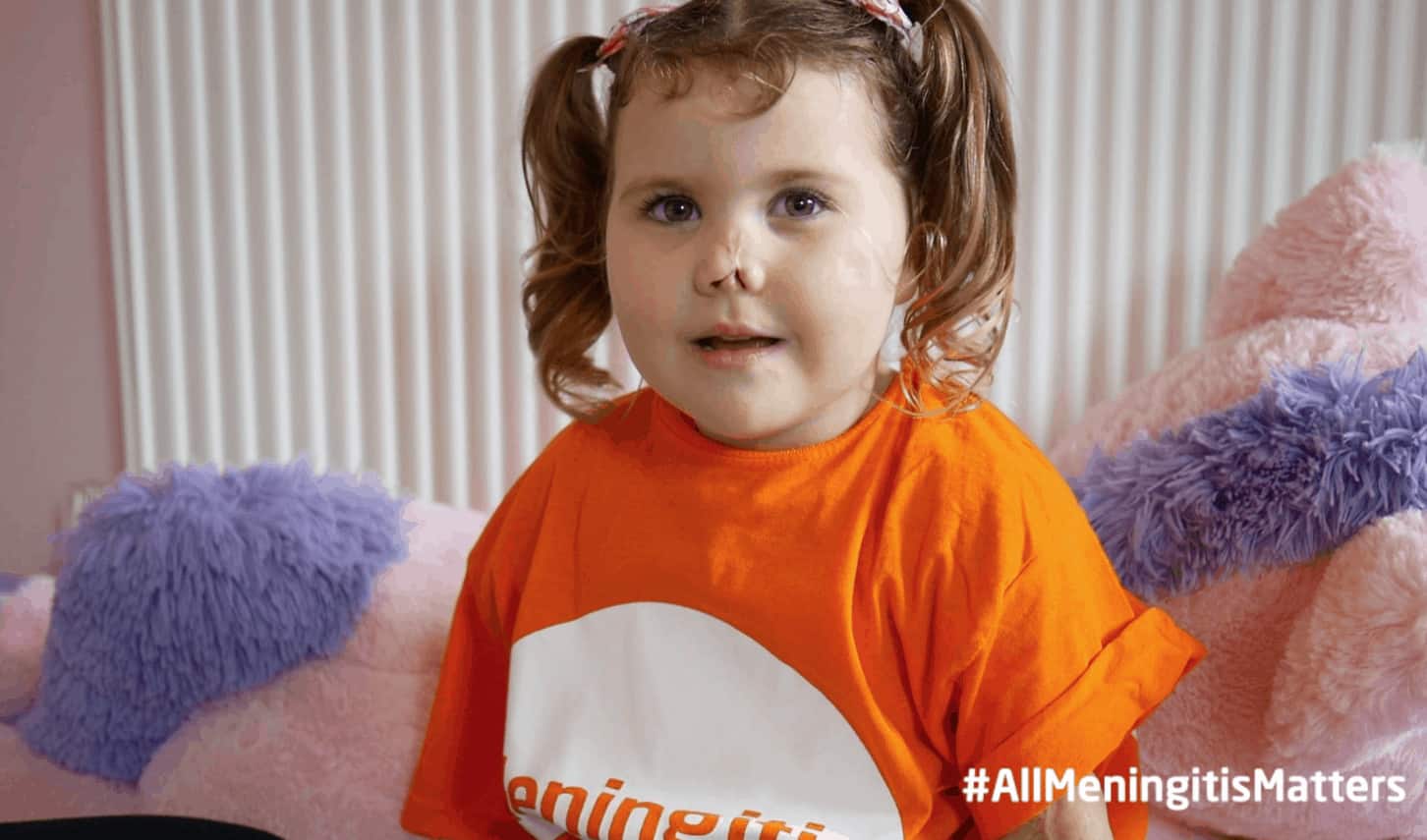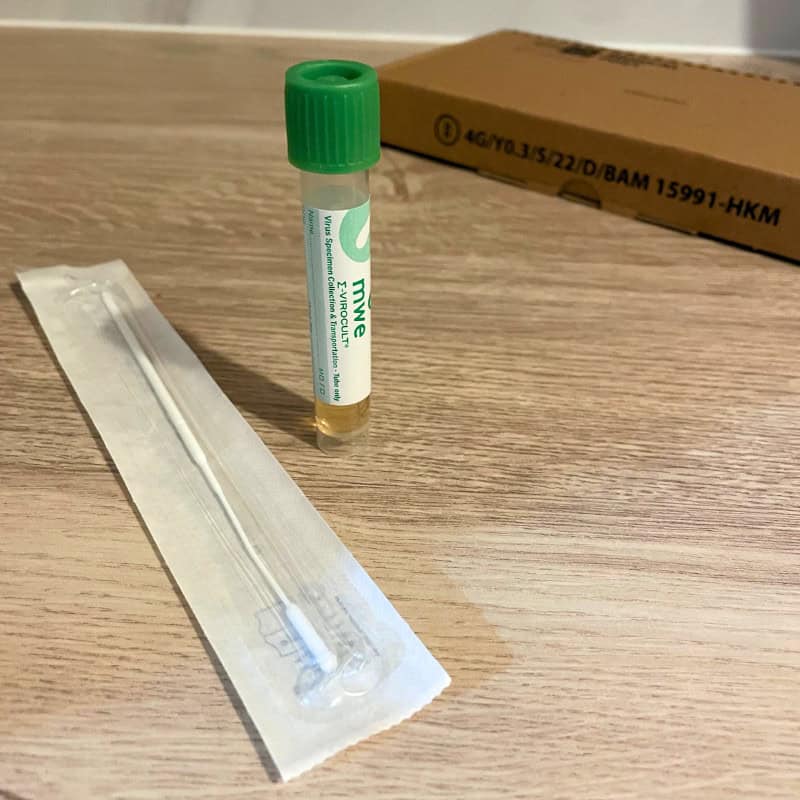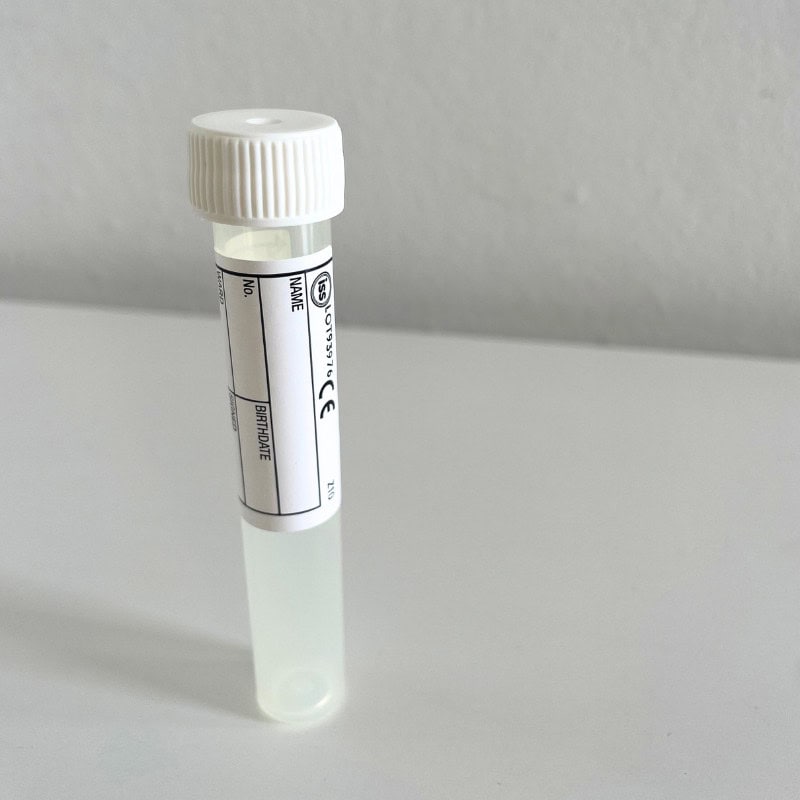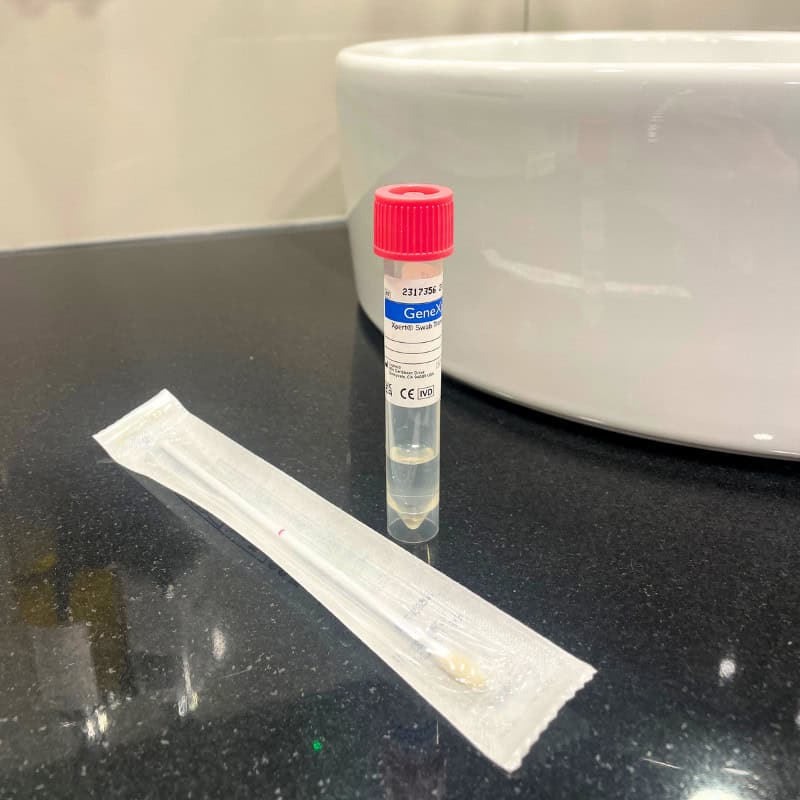Month: July 2024
Recent media reports have raised awareness of the effects of Meningitis B and the importance of the meningitis vaccine (if your child is aged under 12 months, the vaccine still readily available via your NHS doctor). Less well-known is the fact that there are different strains of Meningitis, with different vaccines protecting against them.
Strains and Meningitis Vaccines:
- Meningitis B: the protective single-strain meningitis B vaccine is Bexsero
- Meningitis A C W Y: the 4-strain vaccines Menquadfi and Nimenrix offer protection.
Meningococcal Meningitis and its Symptoms
Meningococcal meningitis is a bacterial infection that causes inflammation of the protective membranes surrounding the brain and spinal cord. It can affect people of any age, but those most commonly affected are children under 5, and teenagers and young adults heading off to university.
Initial symptoms may be similar to flu, progressing to:
- A high temperature/fever, with cold hands and feet
- Vomiting
- Refusal to eat
- Drowsiness
- Floppy and unresponsive
- Rapid breathing
- Neck stiffness
- Bright light sensitivity
- Pale, blotchy skin, and a red rash that doesn’t fade when a glass is rolled over it
- Convulsions or seizures
Further information: https://www.meningitisnow.org/meningitis-explained/
The specialists at the Fleet Street Clinic recommend getting your children vaccinated not just against Meningitis B, but against Meningitis A,C,W & Y strains as well (the vaccine is currently available and in stock).
Meningitis B Vaccines Availability
We currently have a good supply of Meningitis B vaccine, available on a first come, first served basis. You can book a Meningitis B vaccination appointment online.
Respiratory Syncytial Virus (RSV) is a common and highly contagious virus that primarily affects the respiratory tract, causing significant illness, particularly in infants.
It is present year-round but peaks during the winter months, and spreads through droplets from coughs and sneezes or via contact with contaminated surfaces. RSV is a virus, so antibiotics are not an effective treatment.
Each year, RSV poses a substantial health risk to infants and older adults worldwide.
In the UK, RSV accounts for approximately 33,500 hospitalisations annually in children aged 5 and under, resulting in 20 to 30 deaths per year. 75-80% of hospitalisations due to RSV happened during the first 6 months of life.
Is there a suitable RSV vaccine for pregnant woman?
Abrysvo is a recombinant vaccine for the prevention of severe lower respiratory tract disease caused by RSV in infants up to six months old. It is the only maternal RSV immunisation given to the pregnant woman between 28 – 36 weeks of pregnancy to help protect newborns. It can also be used for older adults over the age of 60 years, in preventing RSV that can lead to breathing difficulties and pneumonia.
Maternal vaccination involves administering vaccines to pregnant women to protect their newborns through the transfer of antibodies. This approach has been effectively used for diseases like whooping cough.
Vaccinating pregnant women against RSV provides passive immunity to their babies, safeguarding them against RSV until they can receive their own vaccines. The RSV vaccine should ideally be given at least 2 weeks apart from the whooping cough vaccine.
In the UK, the Joint Committee on Vaccination and Immunisation (JCVI) has assessed the impact of RSV and now recommends vaccination to protect vulnerable groups, including infants and older adults with the aim of reducing the incidence of RSV-related illnesses among infants, ultimately reducing RSV-related morbidity.
At Fleet Street Clinic, we can offer private RSV vaccination to protect you and your baby, ahead of the NHS roll out.
Abrysvo is an inactivated vaccine and only requires a single dose for protection.
Price: £299
Please contact our reception team to book by phone, +44 20 7353 5678 or by emailing info@fleetstreetclinic.com
RELATED SERVICES AVAILABLE AT FLEET ST. CLINIC
Every year, Brits take more than 70 million trips abroad. Most notably for holidays, business trips and to visit family and friends. Whilst the majority of people have a safe trip, some people do experience illness or have an accident. In most cases, minor accidents and illnesses don’t require a visit to a medical centre or hospitalisation and can be self-treated with the help of a medical kit.
Where you are travelling to and the activities you plan to do there will dictate what type of medical kit(s) you would need.
Essential First Aid Kit £27
If you are planning to travel outside of a major city, you’re best to travel with an Essential First Aid Kit. It’s very easy to get scratched, twist an ankle or develop a blister. Particularly if you’re sight-seeing, hiking or even just taking a trip to the beach. Having a few essential supplies handy will reduce the need for a trip to the local chemist. Inside this kit, you will find items aimed at treating minor cuts, grazes, blisters, cleaning wounds, minor burns and sprains.
Worldwide Travellers’ Diarrhoea Kit £29.95
When you travel to a developing country, you have a high likelihood of catching a stomach bug. Also known as traveller’s diarrhoea. This is not always brought on by unsafe water and can be due to a change in diet or the high levels of impurities in the local water that you’re not used to. However, if the cause is a microorganism such as bacteria, parasite or virus, your symptoms may be much more severe and lead to complications. Travelling with a Worldwide Gastro Kit covers all eventualities. Including preventative items, plus medications for common symptoms such as nausea, vomiting, dehydration and travellers diarrhoea.
Sterile Needle Kit £9.50
The adventure traveller is likely to travel to remote areas where medical supplies are not sterilised to a safe standard or medical care in a hospital setting is not available at all. In these scenarios, it is safest to travel with a Sterile Needle Kit. This kit is to be provided to a medical professional to be used for medical emergencies such as a blood transfusion, fluid replacement, general vaccinations or blood tests. This kit is to reduce the spread of diseases such as HIV & Hep B.
Female Health Kit £29.95
There are many female-specific health concerns that may occur whilst travelling. Unfortunately, urinary tract infections (UTI’s) and thrush (yeast infections) are common among female travellers. Therefore travelling with a Female Health Kit is highly recommended.
Travelling with a fit-for-purpose medical kit is not glamorous. However, you’ll be glad you have it if you suffer any mishaps. Saving you time, money and stress involved in finding a local chemist, medical centre or hospital quickly when you are abroad. And if you don’t, then at worst you’ve lost out on a tiny amount of suitcase space.
Before International Travel you should consider a pre-travel consultation with a specialist travel nurse to discuss the health risks at your destination. You can book a travel appointment online or email us for more information at info@fleetstreetclinic.com.
SUMMER TREKKING
Do you enjoy the great outdoors and active holidays? If so, you may be contemplating a trekking adventure. Top summer trekking destinations include Cotopaxi, Ecuador, the Atlas Mountain Range in Morocco, The Ladakh Ranges in India and Mont Blanc in the French Alps.
Fleet Street Clinic offers travel tips for trekkers from Anna Chapman, one of our specialist travel nurses, to help prepare for your holiday and make the most of your adventure.
-
Ensure that you are up to date with vaccinations. It comes as a surprise to most people that vaccination should be considered before hiking in northern Europe. Tick borne Encephalitis is a serious viral infection that causes swelling of the brain. As the name suggests, it is spread by the bite of an infected tick, and it is endemic throughout northern Europe, Russia and China. If you’re heading further afield, to South America or Africa, you may need Yellow Fever vaccination for your own protection, or for border control.
- The most common illness amongst travellers is upset stomachs. Pack hand sanitiser to use when soap and water for hand washing is unavailable. Take water purification tablets if you have not got access to safe water. Medicines such as rehydration salts and anti-motility medicines can be helpful if you do become unwell.
- Most trekking routes are at high altitudes. Understand the effects of altitude sickness. Take time to acclimatise to altitudes and consider taking medication such as Diamox to reduce the severity of acute altitude sickness.
- Look after your feet. Invest in good trekking boots, socks and wear them in before you go. Keep your feet dry when trekking by changing your socks and using foot powder. Zinc oxide tape or Compeed dressings can be helpful if you do get blisters.
- Pack suitable clothing. Trekking in mountain ranges usually involves variable temperatures: Warm days, thin air, strong sunshine and cool nights. Pack breathable clothing, a waterproof jacket and warm base layers. Sun protection is essential, especially in high altitude ranges, so apply the “Slip, Slop, Slap” rule. Slip on a shirt, slop on some sunscreen and slap on a hat.
FLEET STREET TRAVEL CLINIC
Travelling with children can be an enlightening and wonderful experience for the family – creating memories and opening their minds to other cultures and ways of life. But on the flip side it also can be quite daunting, especially if this is your first time travelling with children. The best way to establish a safe travel experience abroad is to take early precautions.
Before Your Travels
When it comes to travelling with children, careful planning and preparation should be considered. It is highly advised to have a travel consultation well in advance of your travels. The travel nurse will make you aware of any travel risks and take into consideration your child’s current wellbeing. Depending on where you are travelling, your child may require certain vaccinations.
These preventative measures will safeguard your child from any diseases or illness.
Your may be advised the following vaccinations:
- Rabies
- Yellow Fever
– Some countries require this as a condition of entry and will ask for proof of vaccination when you arrive into the country. - Hepatitis A
- Typhoid
- Tick-borne Encephalitis
- Japanese Encephalitis
- Hepatitis B
- Meningitis ACWY
- Cholera
All vaccinations require a duration of time following vaccination to reach full protection, usually 10 – 14 days, so factor this time in before your travels. In addition, some vaccinations require a multi-course dose before they are considered effective, such as rabies which requires 3 vaccinations to be considered a complete course. Book a travel consultation early to ensure you have enough time before you travel.
In addition to travel vaccinations it is worth discussing any upcoming childhood vaccinations that could be beneficial to have at the same time so your child is protected against any other common diseases that aren’t necessarily associated with just travel.
If you intend to go to countries with a high malaria risk it is important to discuss antimalarial protection during your travel consultation. Malaria can be fatal and there is a higher risk for children. Antimalarials (malaria tablets) are generally taken for a duration before, during and after your trip and need to be purchased in advance of your travels. There are a number of different types and are suitable for different people so it is important to discuss your options with a travel health expert. The tablets work by ensuring the malaria parasite doesn’t reach unmanageable numbers, keeping you healthy whilst you travel.
Travelling abroad can be exhausting, especially for young children. Jet Lag is known to cause temporary sleep disturbance, which can have an impact on your mental health and other bodily functions. To prepare ahead, The Jet Lag Calculator can tell you how long it will take the body to adjust to your new time zone when you travel – and to adjust back again when you come home.
To undergo a Pre-Travel Consultation, book online or for more information on Travel Health Services.
During Your Travels
Travelling can sometimes result in unexpected situations. For the protection of your child/ren and your family in general, always carry a First Aid Kit. This will reduce your need to seek medical aid for minor accidents or journeys to a chemist, especially if local towns are at a further distance.
When travelling to warmer climates, sun safety is crucial as young children are more vulnerable to sunburn from outdoor activities. To protect the skin apply sunscreen of at least SPF 30, with broad spectrum UVA and UVB protection throughout the day. In addition, hot weather can also pose a risk of dehydration and heat stroke. Ensure you and your child are hydrated throughout the day by drinking water from a safe source. This can be bottled water, boiled water, or water that has been filtered.
To further avoid traveller’s diarrhoea:
- Wash your hands regularly, especially before eating
- Carry an alcohol-based sanitiser
- Keep children from crawling or sitting on the ground
- Avoid swimming in contaminated water
- Don’t swallow any shower or pool water
- Eat raw fruits and vegetables only if washed in clean water or peeled
- Stick to foods that are well cooked and served hot
- Stick to canned or bottled beverages
- Avoid food that has been sitting on a buffet to avoid contamination
We have launched a new, free online consultation for Travellers’ Diarrhoea – by answering a few simple medical questions about yourself, we can check if antibiotics are recommended for your trip. You can pay online and we’ll dispatch them directly to you if you are suitable.
Alternatively, you can have a more comprehensive travel consultation in-clinic with one of our experienced travel nurses.
For more information on the prevention and treatment of Travellers’ Diarrhoea.
The feeling of discomfort from bug bites can truly be a nightmare whilst travelling. Insect bites such as mosquitoes, ticks, biting fleas and kissing bugs can cause pain, irritation and even spread diseases. However, they can be avoided through protective clothing. Our Ultimate Bug Kit has everything you need from repellents to aftercare. Alternatively, you could purchase individual items and create your own kit.
After Your Travels
Travelling can expose your child to certain diseases. If your child falls unexpectedly ill – contact your doctor or emergency services right away. A high temperature/ fever could mean an infection. For most people, travellers’ diarrhoea usually clears up within a few days. However, if your stomach bug has been ongoing for weeks after returning home, then you will need to do testing to investigate the root cause. Viruses, bacteria or parasites all cause similar symptoms but require an entirely different treatment approach. Our Gastrointestinal (GI) Panel PCR test looks for any microbes that are causing your symptoms and can quickly identify the exact cause of your Travellers’ Diarrhoea. Results can be provided in as little as 1-hour, so that accurate and effective treatment can begin straight away.







